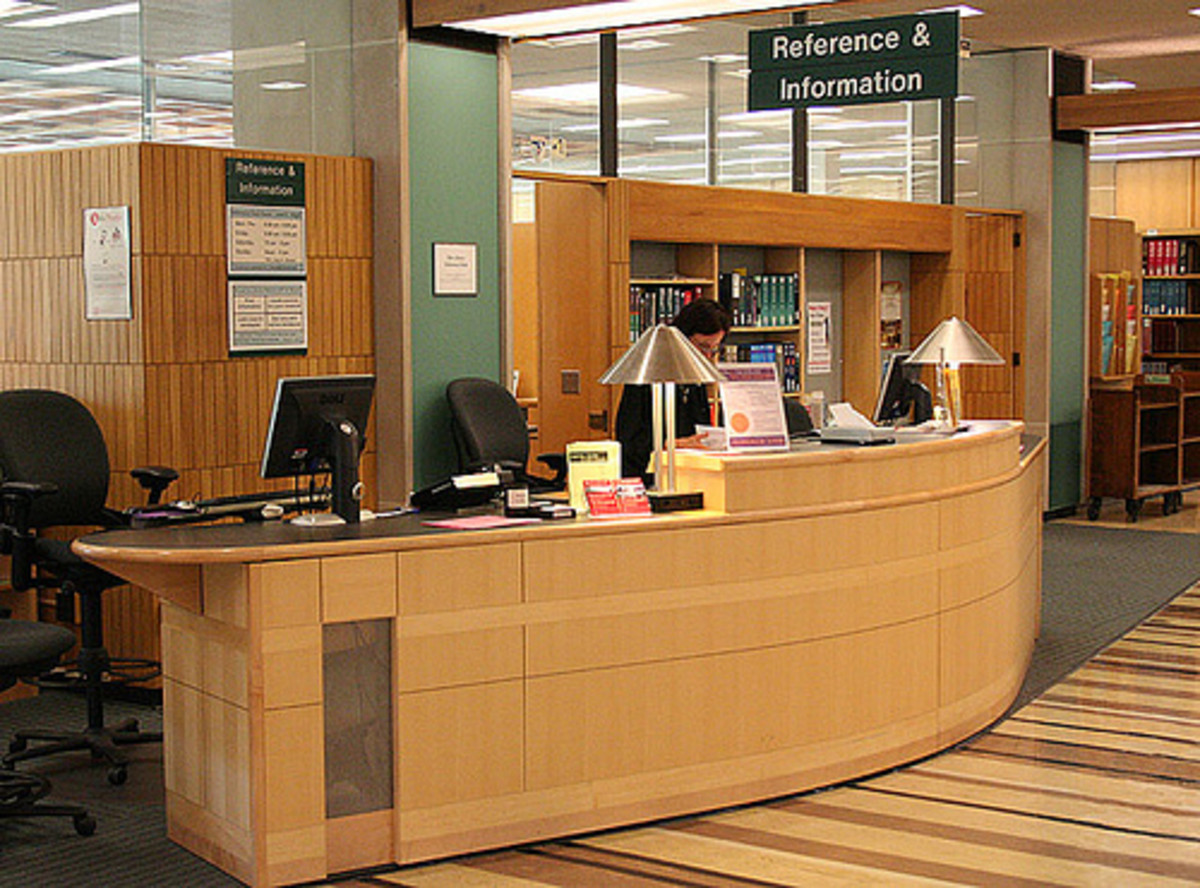A Day in a Prison Library
Prisons are Institutions but so are Libraries
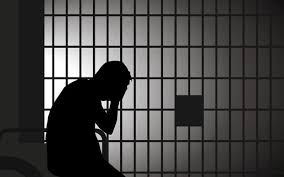
Introduction
Prisons by definition are not meant to be comfortable places. But we are a civil society and our jails are designed to be humane and everyone who is in prison has certain rights. Even when you are incarcerated, you are still entitled to your dignity. Libraries have a lot to offer prisoners and can be a great resource for the inmate and his or her loved ones. I wrote this article to shed a little light on the importance of libraries in general, but especially in a correctional facility, where there are very few amenities and the things we take for granted on the outside are very precious to those who are imprisoned. Libraries not only offer an opportunity to learn, but provide hope and solace in an environment that is sometimes full of anger, hate and stress.
What is a Library in Prison Like?
For those of you who have not experienced incarceration or have not worked in the profession, it may surprise you to learn that most correctional facilities offer inmates access to libraries. In many areas, they are legally mandated. Upon hearing this, you may find certain questions come to mind: What exactly do those in prison use libraries for? What sort of books do you have in a library? Are there computers and other media equipment? What are the checkout dates and are there fines? Who uses the libraries?
Well those are some typical questions that I would ask and you may have many others. I will try to answer some of those in this article and will try and convince you that libraries are very much needed in correctional setting, just as much as they are in any other population center. I will write this based upon the assumption that most people have at least visited a library, even though you may not be a regular user. I'll try to avoid some of the professional argot - the library language - although I would like to inform you that I've worked in libraries and I may unintentionally engage in unfamiliar references.
Some of your perceptions of a prison library may come from popular media such as cinema or literary works. However a library is more than a place where people read books, study for school or check out materials to read at home. Libraries are about purpose.
In prisons the need to provide services to the community is still there. In fact, often there are legal mandates that require a library be present on the correctional campus. There are three major purposes of an inmate library. The main one is to provide inmates access to the courts by offering legal research materials. Second, libraries in a prison also support a variety of educational formats. Basic nonfiction titles and books or other materials on vocational trades could be a part of this category. Third, libraries also offer recreational reading materials just as you would find in a public library setting..
Many of the guidelines related to what learning materials an inmate may have access to, are of course, a little more rigid as certain learning materials would not be appropriate in a high security environment.. I will try to clarify these concerns and provide some realistic examples of issues that might need to be addressed from the perspective of a prison librarian.
The Scales of Justice are Balanced
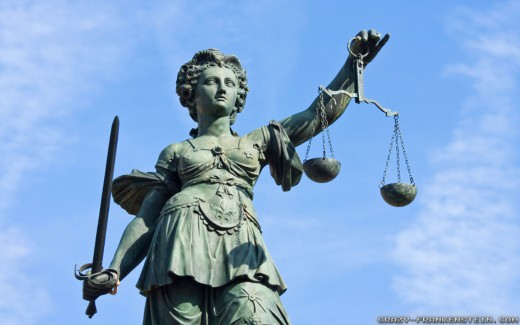
Collection and Materials: what does a prison library look like
. In my experience, most libraries are not very different from one that you would expect to encounter on the streets. The emphasis though is legal services and that usually means there will be a number of law books, legal forms or databases t hat area related to court activities. The main purpose of a law library in prison is to provide inmates access to the courts. This means a library will provide information on statues, legal codes, case law, various types of forms, dictionaries, etc. that all will aide an inmate in his or her pursuits.
A shelf of law books
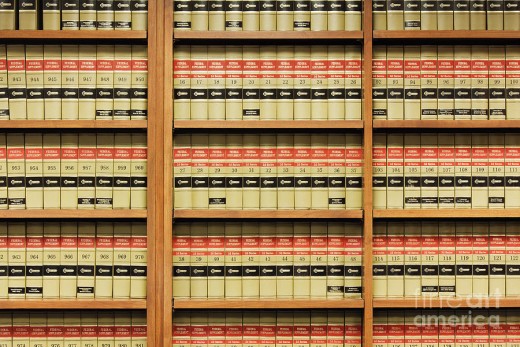
There are also non-fiction books on all topics which most prison libraries carry as well. Books on philosophy, exercise, business, religion - most topics of general interest can be found. Many of the titles support independent learning, while others are designed to assist student who may be taking courses to complete a GED or a higher education degree.
You will also find a nice selection of fiction titles in your prison library as well. Stephen King books, Laura K Hamilton, James Patterson, and Lee Child are many favorite authors. Series books do well as some graphic novels. Mystery, science fiction, westerns and romance Classic authors such as F. Scott Fitzgerald, James Baldwin, Mark Twain. Almost every author in popular culture has an audience with the incarcerated.
Because of the variety of reading levels you may encounter in an institution, it is important to keep available books that cater to the more sophisticated reader as well as the new learners. Fiction books provide an outlet to many prisoners from an environment filled with rigidity and deprivation. They give some readers a sense of familiarity and friendship in a world where solitude and indifference are often encouraged.
Books can act as bonding elements between men who are from different backgrounds that might otherwise be in conflict with each other in prison. The books also offer a distraction and are a deterrent from idle time which could provide inspiration for activities that put the institution staff and other inmates at risk.
Everyone has a Typical Day
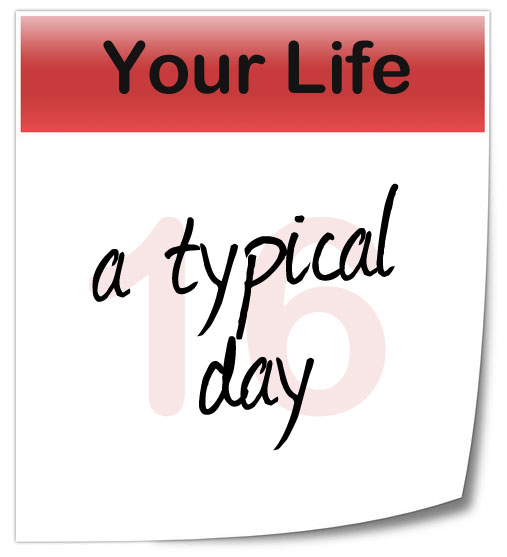
Typical Day
One may be curious as to what the average day is like in a prison library and to be honest with you, in my experience, it is usually pretty pleasant. Most people are glad to see you and very respectful to the library staff. The inmates appreciate the library for what it has to offer and because they are around like minded people, they are usually encouraging and supportive of their fellow patrons.
I have seen very little racial tension or conflict between groups and have yet to see an act of violence or any behavior I deem threatening. Inmates see the library as a valuable part of their lives and try not to jeopardize it. The only complaint I've had about the library is that we're not open enough hours - and this is at a location where there is access five days a week.
Inmates who come into the library, usually fill out a log where they sign their name, their inmate number, housing unit and time in and out. Institution security requires that inmate whereabouts is accounted for. Usually they have a seat and take out the reference materials or computers and study quietly - sometimes all day. There are those who ask to read the paper - usually a USA today because for security purposes, local papers are sometimes restricted. Some read magazines or books, others just come in and take materials back to their housing units.
Prison libraries offer copy services and provide legal forms to assist inmates with their litigation activities. Many are quite accustomed to the practice of law and would be successful attorneys on the outside. Some have earned their paralegal certificate. Without access to a law library, many of the people would be unable to pursue their cases any further which is why it is essential that every correctional facility offer these services.
Philosophy and the Future
When speaking to the general public about supporting prison libraries, I am always aware that there is a perception about the way the incarcerated should be treated. Many people believe that further punishment is appropriate and that spending money to support a library in prison is not cost effective and a waste of their tax dollars. I disagree with these sentiments and have always believed libraries are sacrosanct regardless of the population they serve.
And for those who were sentenced to prison, one must also consider the need for rehabilitation. Everyone makes mistakes . We are a civil society and once sentenced to prison, the person should not be punished further. Prisons should work to assist and help mold the inmate into a better person so they can return to society one day.
One must also consider the fact that there is a distinct correlation between literacy levels and those who come in contact with the legal system. According to a recent study from the Literacy Project Foundation as many as 3 out of 5 prisoners suffer from serious literacy issues. Libraries are designed to help combat literary and in a place where the majority of the population is may not be able to read.
Had many of the people in prison not been let down by the educational system, they might not have ended up in prison at all. Libraries represent education and freedom to a group that probably needs it more than others. It is essential that prisons provide libraries and work to ensure that the inmates there are given reasonable access to books, literacy tools and education opportunities that will help provide the way to a better future.
Hope for the Future...for the World

Do you believe all prisons should provide adequate library services to inmates?
Have you ever visited a prison library?
Do you know anyone who uses prison libraries?
How do you feel about libraries in general
Would you ever work in a prison library
How supportive are you of prisoner's rights
Did you learn anything from this article? (please comment further)
© 2016 Finn





